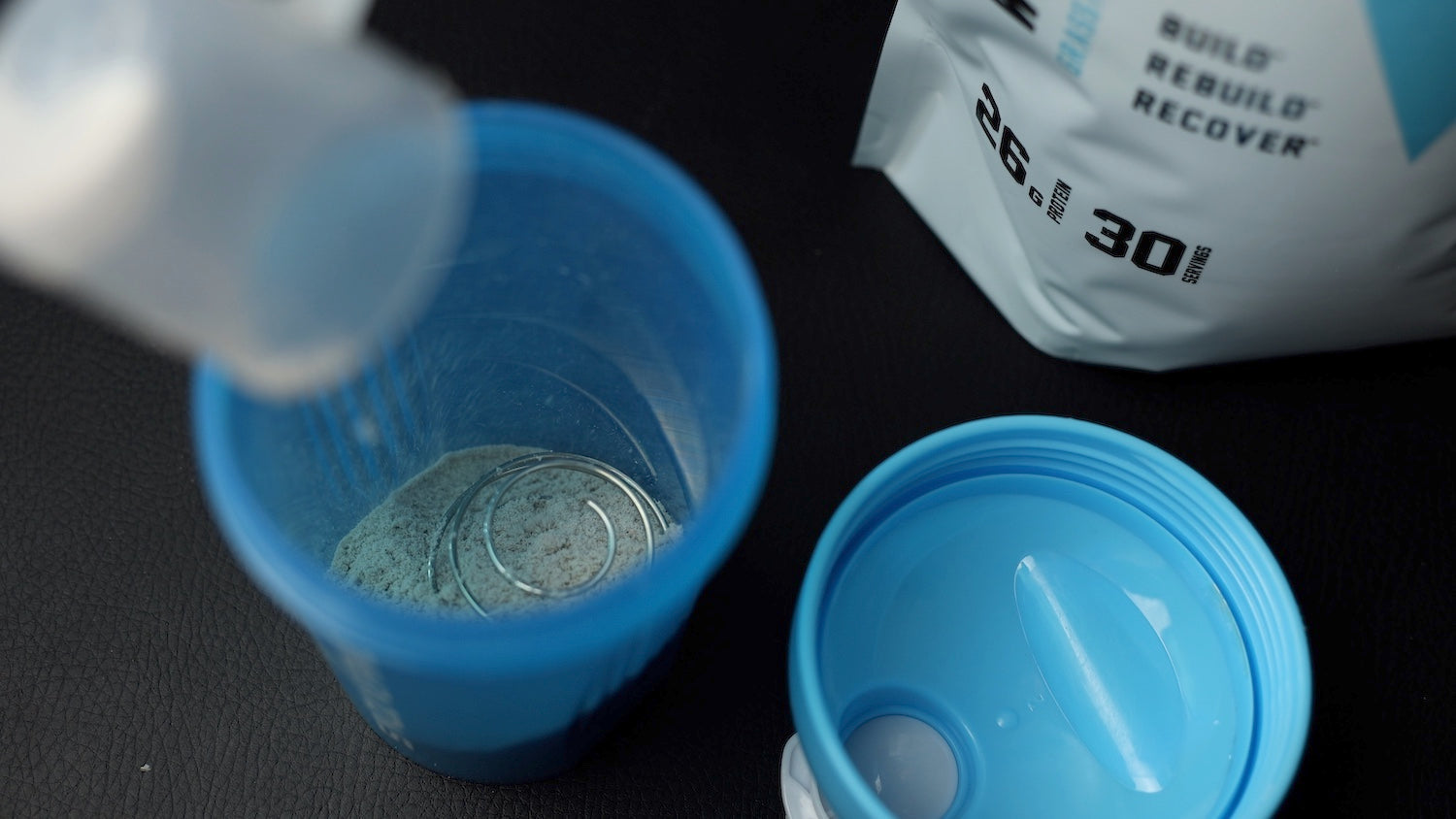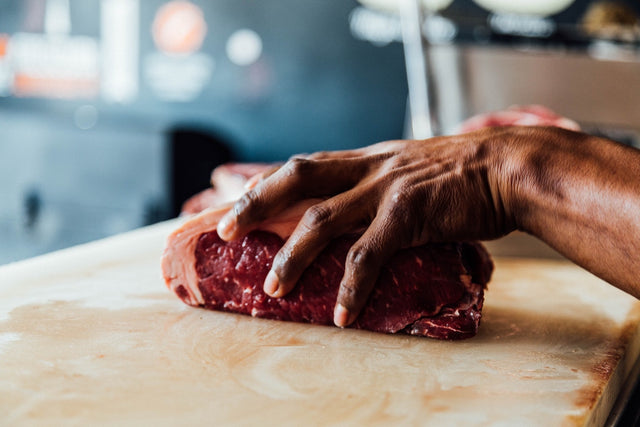Complete vs. Incomplete Proteins: What They Are and Why They Matter
When you hear the phrase "complete vs. incomplete protein," it refers to the amino acid profile of a given food. Most people know protein is crucial for building and repairing lean muscle mass through the process of muscle protein synthesis. But what’s often misunderstood is that not all proteins are created equal, and knowing the difference between complete and incomplete sources can dramatically impact your results—especially for muscle recovery, body composition, and overall health.
In this article, we’ll cover:
-
What Are Complete Proteins?
-
What Are Incomplete Proteins?
-
What Are Complementary Proteins?
-
Are Plant-Based Proteins Complete?
-
Is Soy a Complete Protein?
-
Is Collagen a Complete Protein?
What Are Complete Proteins?
A complete protein contains all nine essential amino acids (EAAs) that the body cannot synthesize on its own. These amino acids include:
-
Histidine
-
Isoleucine
-
Leucine
-
Lysine
-
Methionine
-
Phenylalanine
-
Threonine
-
Tryptophan
-
Valine
These amino acids are required for muscle repair, tissue regeneration, enzyme function, and immune health.
Most animal-based proteins are complete, including:
-
Chicken, beef, pork, lamb, turkey
-
Eggs
-
Fish and seafood
-
Dairy (whey protein, cheese, yogurt, milk)
According to the World Health Organization (WHO), complete proteins offer a biological value (BV) and digestibility score that support optimal amino acid absorption for human growth and maintenance (WHO/FAO/UNU, 2007).
RELATED ARTICLE: Greek Yogurt: The Best Food For Weight Loss
What Are Incomplete Proteins?
An incomplete protein lacks one or more of the essential amino acids in sufficient quantities. Most plant-based protein sources fall into this category, although they still play an important role in a healthy diet.
Examples of incomplete protein sources include:
-
Beans and legumes (black beans, lentils, chickpeas)
-
Grains (rice, oats, wheat)
-
Nuts (almonds, walnuts, pistachios)
-
Seeds (pumpkin, sunflower, sesame)
-
Nut butters
While these foods are rich in other nutrients like fiber, minerals, and antioxidants, relying solely on them without combining sources may leave you deficient in limiting amino acids, such as lysine or methionine (Young & Pellett, 1994 – The American Journal of Clinical Nutrition).
RELATED ARTICLE: The Best Muscle Building Foods for Plant-Based Diets
What Are Complementary Proteins?
When two or more incomplete protein sources are combined to form a food with all nine essential amino acids, the result is known as a complementary protein.
Examples of complementary protein pairings:
-
Rice + beans
-
Hummus + pita bread
-
Whole grain toast + peanut butter
-
Lentils + quinoa
While it's not necessary to combine these proteins at the same meal, it’s important to eat a diverse diet throughout the day to ensure all EAAs are consumed.
The Academy of Nutrition and Dietetics confirms that complementary proteins do not need to be eaten together if a variety of plant foods are consumed over the course of the day (Melina et al., 2016 – Journal of the Academy of Nutrition and Dietetics).
Are There Any Plant-Based Complete Proteins?
Yes. Some plant-based foods are naturally complete proteins, making them valuable additions to vegetarian or vegan diets.
Examples include:
-
Quinoa
-
Soy (edamame, tofu, tempeh)
-
Hemp seeds
-
Chia seeds
-
Amaranth
-
Spirulina
-
Buckwheat
In a 2019 study, quinoa was found to offer a balanced amino acid profile and was proposed as a sustainable solution to protein deficiencies in plant-based diets (Navruz-Varli & Sanlier, 2016 – Critical Reviews in Food Science and Nutrition).
RELATED ARTICLE: Spirulina: A Miracle From the Sea or Just Pond Scum?
Is Soy a Complete Protein?
Yes. Despite being a legume, soy is a complete protein that contains all nine essential amino acids.
One added benefit of soy protein is its potential role in cardiovascular health. A meta-analysis from the New England Journal of Medicine found that soy protein consumption significantly reduced LDL cholesterol and improved lipid profiles.
Soy-based proteins such as tofu, tempeh, edamame, and soy protein isolate are excellent choices for plant-based diets seeking complete amino acid profiles.
RELATED ARTICLE: The Shocking Truth About Soy
Is Collagen a Complete Protein?
Collagen is a specialized structural protein rich in glycine, proline, hydroxyproline, and alanine, which are critical for joint health, tendon and ligament support, skin elasticity, and gut lining integrity.
However, collagen is not a complete protein because it lacks tryptophan and contains very low levels of several essential amino acids.
According to the Journal of Clinical Nutrition, despite being incomplete, collagen supplementation supports connective tissue repair and muscle recovery, especially when paired with resistance training (Zdzieblik et al., 2015).
RELATED ARTICLE: The Complete Guide to Collagen Protein: Uses & Benefits
Is Colostrum a Complete Protein?
Yes, bovine colostrum is a complete protein, containing all nine essential amino acids. It also includes bioactive compounds like immunoglobulins, lactoferrin, growth factors (IGF-1), and cytokines, which contribute to immune health and tissue repair.
Colostrum has a particularly high concentration of leucine, making it valuable for muscle protein synthesis and recovery.
A study published in Nutrition found that colostrum supplementation improved lean body mass and performance during strength and speed training (Buckley et al., 2003 – Nutrition).
While it’s not as commonly used as whey or casein, colostrum provides a functional complete protein with added recovery and immune benefits—especially valuable in post-training recovery.
Is Egg Protein a Complete Protein?
Yes. Egg protein—particularly from whole eggs and egg whites—is considered one of the highest quality complete proteins available. It contains all nine essential amino acids in proportions nearly ideal for human use.
Egg protein also scores 100 on the Protein Digestibility-Corrected Amino Acid Score (PDCAAS), meaning it's highly digestible and bioavailable.
The World Health Organization recognizes egg protein as a reference protein, against which other protein sources are measured for quality (WHO/FAO/UNU, 2007).
Additionally, eggs are rich in leucine, which plays a critical role in initiating muscle protein synthesis post-exercise.
Is Casein a Complete Protein?
Yes, casein is a complete protein derived from milk that contains all essential amino acids. It digests slowly, providing a sustained release of amino acids into the bloodstream over several hours.
This makes casein particularly beneficial when consumed before bedtime or during prolonged periods without food, as it helps preserve muscle mass and promote overnight recovery.
Research in The American Journal of Clinical Nutrition showed that ingesting casein before sleep significantly enhanced muscle protein synthesis during overnight recovery after resistance training (Res et al., 2012).
Casein is also high in glutamine, an amino acid involved in muscle repair and immune function.
Is Bone Broth a Complete Protein?
No, bone broth is not considered a complete protein. While it is high in collagen-based amino acids like glycine, proline, alanine, and hydroxyproline, it lacks sufficient amounts of several essential amino acids—particularly tryptophan and methionine.
That said, bone broth still has valuable uses:
-
Supports joint health
-
Promotes gut lining repair
-
May aid collagen production for skin, hair, and nails
According to a review in Current Medical Research and Opinion, collagen-rich proteins like those found in bone broth support joint integrity and function, but should not be relied on as a primary protein source for muscle building (Zdzieblik et al., 2017).
To build or maintain lean muscle, bone broth should be paired with complete proteins like whey, casein, or egg.
Complete vs Incomplete Proteins: Final Takeaway
The quality of your protein matters—especially when your goal is to build muscle, recover faster, or simply support overall metabolic health. While all protein sources contribute to your daily intake, understanding which ones are complete and how to combine incomplete proteins can make a significant difference in your long-term progress.
-
Animal-based proteins are the easiest way to ensure you're getting all nine essential amino acids.
-
Plant-based eaters should focus on variety, include complete plant-based proteins like soy and quinoa, and leverage complementary pairings when needed.
-
Collagen, while not complete, still offers powerful benefits for recovery, joint function, and performance.
Whether you're an omnivore, vegetarian, or vegan, building a well-rounded protein strategy ensures your body has the tools it needs to perform, repair, and thrive.













